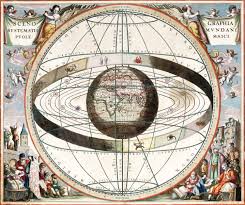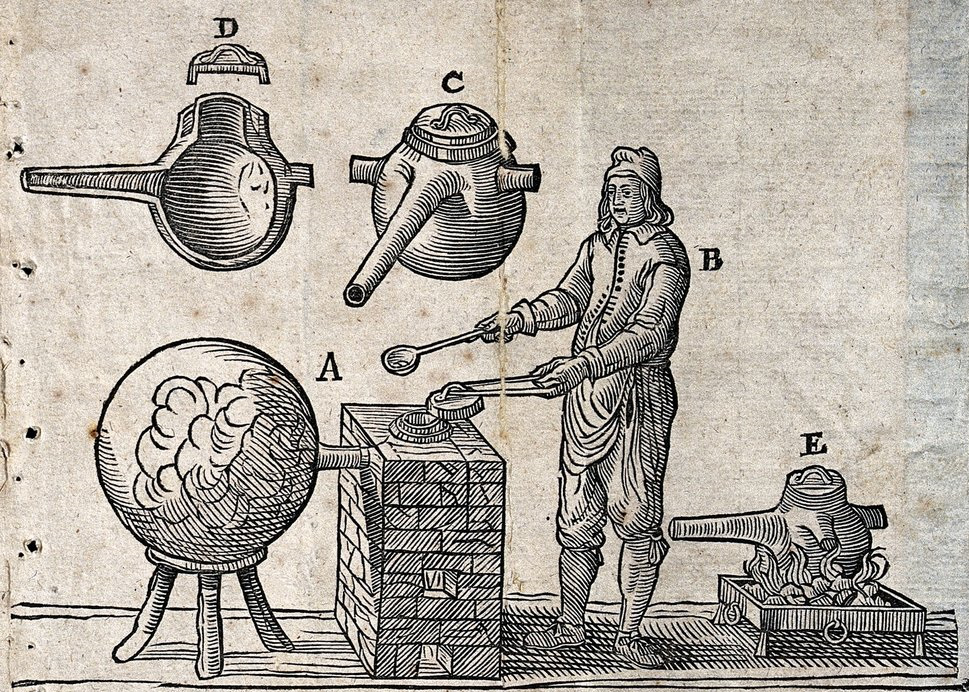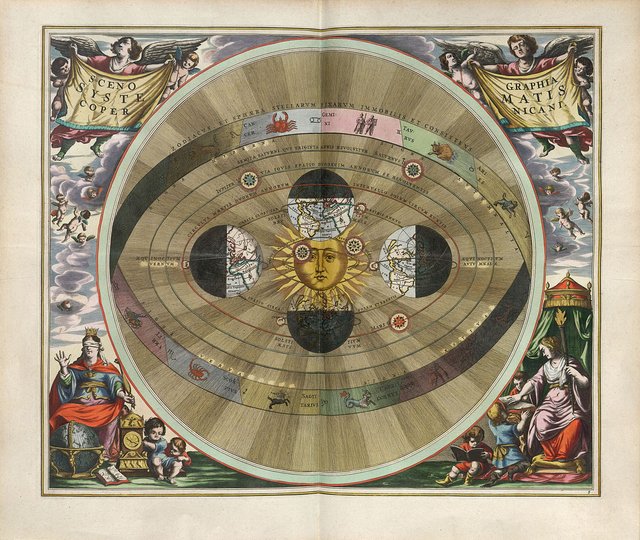Mankind’s earliest attempts to understand energy, matter and his place in the Universe were through the philosophy of alchemy. Alchemy was the precursor to science. It began in India approximately five thousand years ago, spread to China, eventually made its way eastward to Egypt and the Middle East, eventually making its way to Spain and finally the rest of Europe by the 8th century. Over its long history, its purposes have included purifying the spirit and body to reach immortality and other spiritual or religious goals, improving fertility with rhinoceros horn medicines, trying to cure ailments with mercury, arsenic, and lead concoctions, figuring out man’s connection to the planets, sun and stars, understanding natural phenomena, such as lightning occurs because Zeus throws lightning bolts when he is angry at men, and trying to turn lesser metals into gold. All seemed exactly right, reasonable, and logical at the time, but they weren’t.
There is a long list of famous alchemists. They were Indian, Chinese, Islamic, Egyptian, Roman, Greek, and European philosophers from the past, plus famous scholars of alchemy from the 19th and 20th centuries, including the Swiss founder of analytical psychology, Carl Jung (1875-1961).
Alchemy is a philosophy whose ‘philosophical theories’ about energy, matter and spirit were driven by assumptions, inference, and coincidence. Over the millennia, most studies were based on superstitions and folklore of the time, biased by religious, political, and personal beliefs, and diminished by charlatan quackery. Philosophical arguments were won by whomever told the greatest tale (early marketing), carried the biggest stick or had the most power (Galileo vs the Roman Catholic Church; 1633), along with successful discoveries by the occasional genius; for example, Archimedes, Aristotle, and Galileo. The history of Alchemy, through the tales of alchemists’ lives, is fascinating, perhaps even binge-worthy.
Rejecting alchemy as the only means for discovering cause and effect facts, Sir Francis Bacon (1561–1626) emphasized reliance on inductive reasoning for leading the mind to facts, rather than the reverse. He rejected other’s reliance on cultural or instinctive presumptions discovered from within, backed up only by the mind’s opinions and assertions. Methods needed to be based on observable, empirical evidence that was testable and measurable through repeatable experiments, which were carefully designed to determine if hypothetical statements were true or false, and included necessary controls to avoid misleading results, recording every detail, analyzing the results, drawing conclusions from the facts to determine validity of the hypotheses, followed by retesting, verify,ing and publishing the studies, so others could run the same experiments to validate or negate the conclusions. Just like that sentence, the scientific method is long, thorough, and complex. It is longer still, since everything must be repeated, repeated, repeated to gain statistical significance and certainty for the conclusions. Science continues to probe the unknown because each research study brings to light even more hypotheses to test.
Philosophy continues to be used in science. Albert Einstein (1879-1955) and Niels Bohr (1885-1962) were theoretical physicists, meaning they used mathematics to discover presumed facts about science. Einstein used to say that they conducted ‘thought experiments’ when they interpreted what they believed mathematics was telling them about quantum mechanics, and how atoms were structured, how particles and waves behaved, both nearby and at a distance. It wasn’t until decades later that modern technology advanced enough for experimental physicists to run the actual experiments to test Bohr and Einstein’s philosophical theories. Many tests have been run with particle accelerators at CERN in Switzerland and quantum mechanics has been proven valid.
Hence, we have two kinds of theories – Philosophical Theory and Scientific Theory. One poses theories based on educated assumptions and ideas, whereas Scientific Theory provides empirical evidence to prove facts .
Due to the scientific method, fact finding does not rely on the occasional genius dedicating a lifetime before something can be discovered or correctly understood. Following the scientific method allows millions of trained, qualified scientists to discover facts that are free and independent from the folklore of the time, cultural or corporate biases, political agendas, and religious beliefs. Important discoveries are made daily all over the world.
Discovering facts through science is essential. Science reveals correct answers to the questions Mankind has asked since the beginning of time. Science is how answers are discovered for all of the who, what, where, when, how and why questions that are asked concerning our World, Life, Earth, Sky, and the Universe.



